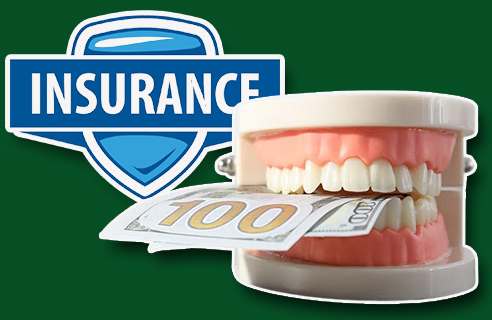Have you been searching the internet for questions like Does my dental insurance cover Sealants? Well, this article is just the right one for you. Understanding if insurance covers dental sealants can be very confusing and overwhelming.

Dental sealants are coatings that are applied to the back teeth to prevent cavities, but the insurance coverage for this dental procedure isn’t always clear. Coverage will depend on factors like your insurance provider, the patient’s age and even the details of your plan. Knowing these details can help you make better choices about your dental care and financial planning.
What Are Dental Sealants?
Dental sealants are also called teeth sealants. They are thin plastic coatings that are applied to the permanent back teeth (molars) grooves. These sealants help in preventing food and bacteria from getting stuck and causing cavities or tooth decay
Just as we all know, the back molars have narrow grooves that are hard to clean with regular brushing and flossing. Food can get trapped there for a very long time, promoting bacterial growth and making our teeth prone to decay.
While fluoride in toothpaste and drinking water can help to protect most tooth surfaces, sealants gives more protection for your back teeth. They can to keep out food and germs. And also prevent cavity-causing plaque from building up. With the help of sealants, you might avoid more extensive dental treatments in the future, such as crowns, fillings, or caps to fix infected teeth or decayed tooth.
Who should make use of Dental Sealants?
Dental sealants are especially beneficial for children and teenagers. And that is because their developing teeth need extra protection. Usually sealants will be applied to the mouth when the first molars come in, between ages 5 and 7. And applied again when the second set of molars appear, between the ages 11 and 14.
In certain cases, dentists might suggest sealants for baby teeth with deep grooves or pits in order to keep them cavity-free. This helps in ensuring healthy permanent teeth.
Although, dental sealants are most commonly used for kids and teens, adults who are prone to tooth decay in their back teeth can also apply them benefit from them. Once the adult apply them, dental sealants can prevent about 80% of cavities for two years.
How Much Does Dental Sealants Cost?
Usually, the cost is between $33 and $82 per tooth. This can be a very affordable prove compared to the pain that may occur with dental procedures if you teeth remains without protection.
Keep in mind that the cost of sealants depends on the practice and location. However, it is considered affordable to fillings and repairs. Just so you know, Dental sealants have been provided to very affordable, safe and efficient dental procedure.
Are Sealants Covered by Dental Insurance?
Generally speaking, we can’t guarantee that every insurance company covers dental sealants, but many do. About 80% of dental insurance plans fully cover sealants as a preventive benefit. While some plans only cover those for children that are under the age of 18, and others include adults. Medicaid and the Children’s Health Insurance Program (CHIP) also cover sealants for kids.
Health Insurance companies aim to keep you healthy. And sealants are great for protecting your molars. To know if your insurance will cover the cost of dental sealants, it is advisable that you meet with your insurance company and ask.
Bottom Line
Knowing whether insurance covers dental sealants or not can be a bit tricky since coverage varies by provider and plan. Just as I have mentioned above, many insurance plans fully cover sealants for children as a preventive measure, while some may also extend coverage to adults
This is why it is very important to directly check with your insurance provider to understand your specific coverage and any out-of-pocket costs that you may e charged for. Even if your plan doesn’t cover sealants, the relatively low cost—ranging from $33 to $82 per tooth, makes it a very worthy investment for long-term dental health.
By taking the right steps, you can easily help prevent cavities and more costly dental procedures down the road. Knowing more about your insurance coverage and the benefits of dental sealants will enable you to make good decisions about your health.

